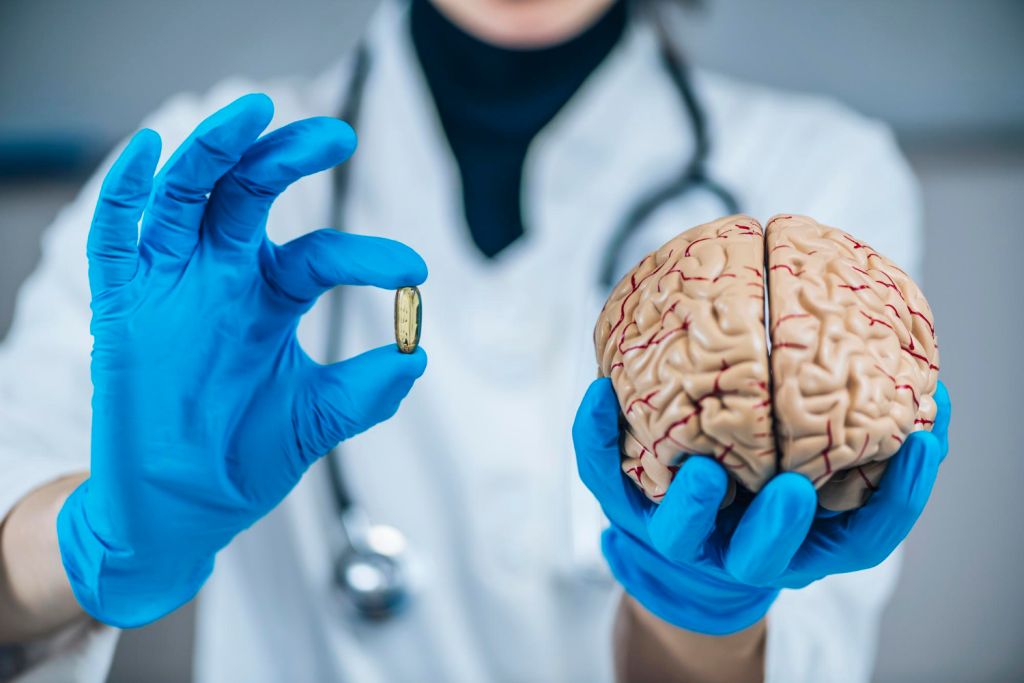The Connection Between Diet and Mental Health

Mental health is an integral part of well-being, encompassing emotional, psychological, and social factors that affect how we think, feel, and act. It influences how we handle stress, relate to others, and make choices. Interestingly, diet plays a significant role in mental health. While it’s commonly known that nutrition affects physical health, emerging research reveals its impact on mental well-being.
Diet influences mental health through various mechanisms. It’s not just about weight management or physical fitness. The foods we consume have the power to nurture our minds and influence our moods. Understanding this connection can guide us in making informed dietary choices that enhance mental health and overall quality of life.
This blog post explores the link between diet and mental health, offering insights into how certain nutrients can support mental well-being. We’ll explore the impact of macronutrients and micronutrients, the gut-brain connection, and the role of diet in managing mental health disorders like depression and anxiety. Join us on this enlightening journey to discover how what you eat can shape your mental landscape.
The Impact of Macronutrients on Your Mood and Cognitive Function
Macronutrients—carbohydrates, proteins, and fats—are fundamental components of our diet that provide energy and nourishment. They play a vital role in brain function and mood regulation. Understanding their effects can empower us to make dietary choices that promote mental clarity and emotional balance.
Carbohydrates are the brain’s primary source of energy. They play a crucial role in mood regulation by influencing serotonin production, a neurotransmitter that contributes to well-being and happiness. Consuming complex carbohydrates found in whole grains, fruits, and vegetables can provide a steady release of glucose, helping maintain stable moods and focus.
Proteins are essential for neurotransmitter synthesis and overall brain health. They provide amino acids, the building blocks of neurotransmitters like dopamine and serotonin. Including protein-rich foods like lean meats, fish, eggs, and legumes in your diet can support mood stability and cognitive function.
Fats, particularly omega-3 fatty acids found in fatty fish, flaxseeds, and walnuts, are crucial for brain health. They contribute to the structure of brain cells and play a role in reducing inflammation. Omega-3 fatty acids have been linked to lower risk of depression and improved cognitive function. Incorporating these healthy fats into your diet can support mental well-being and protect against mood disorders.
Micronutrients: The Key to a Healthy Mind
Micronutrients, including vitamins and minerals, are essential for various bodily functions, including brain health. They act as cofactors in enzymatic reactions and participate in neurotransmitter synthesis. Ensuring an adequate intake of micronutrients can support mental well-being and prevent deficiencies that may negatively impact mental health.
Certain vitamins, such as vitamin D, B vitamins, and vitamin C, are particularly important for mental health. Vitamin D, often referred to as the “sunshine vitamin,” plays a role in mood regulation and has been associated with a reduced risk of depression. B vitamins, including B6, B9 (folate), and B12, are involved in neurotransmitter synthesis and brain function. Vitamin C acts as an antioxidant and supports the nervous system.
Minerals like magnesium, zinc, and iron are also crucial for mental well-being. Magnesium is involved in neurotransmitter regulation and can help reduce anxiety. Zinc plays a role in brain development and function, and deficiencies have been linked to mood disorders. Iron is essential for oxygen transport and energy production in the brain.
Meeting your daily micronutrient needs through a balanced diet rich in fruits, vegetables, whole grains, and lean proteins can support optimal brain health and mental well-being.

The Gut-Brain Connection: How Your Diet Affects Your Gut Microbiome
The gut-brain connection highlights the intricate relationship between your digestive system and your mental health. The gut microbiome, a diverse community of microorganisms in your intestines, plays a crucial role in this connection. Emerging research suggests that a healthy gut microbiome can positively influence mood, cognition, and overall mental well-being.
The gut communicates with the brain through the gut-brain axis, a bidirectional communication pathway. The gut microbiome produces neurotransmitters and metabolites that can affect brain function and mood. A balanced and diverse gut microbiome is associated with reduced risk of depression, anxiety, and other mental health disorders.
To support a healthy gut microbiome, focus on incorporating fiber-rich foods like whole grains, fruits, vegetables, and legumes into your diet. Fermented foods like yogurt, kefir, sauerkraut, and kimchi provide probiotics, beneficial bacteria that promote gut health. Prebiotic foods, such as garlic, onions, and bananas, feed these beneficial bacteria.
Avoiding excessive consumption of processed foods, sugar, and artificial additives can also help maintain a balanced gut microbiome. By nourishing your gut, you can support your mental well-being and enhance your overall quality of life.
The Influence of Diet on Mental Health Disorders
Diet can significantly influence mental health disorders, including depression and anxiety. Research suggests that certain dietary patterns and nutrients can play a role in managing and preventing these conditions. Understanding the impact of diet on mental health empowers individuals to make informed choices that support their well-being.
Depression is a common mental health disorder characterized by persistent sadness and loss of interest. Studies have found that a Mediterranean-style diet, rich in fruits, vegetables, whole grains, lean proteins, and healthy fats, is associated with a reduced risk of depression. Omega-3 fatty acids, B vitamins, and antioxidants found in these foods may contribute to their protective effects.
Anxiety disorders, characterized by excessive worry and fear, can also be influenced by diet. Caffeine, found in coffee and energy drinks, can exacerbate anxiety symptoms. Conversely, foods rich in magnesium, such as leafy greens, nuts, and seeds, have been shown to have calming effects. Herbal teas like chamomile and green tea can also promote relaxation.
Incorporating a variety of nutrient-dense foods into your diet, while minimizing processed foods and sugar, can help manage and prevent mental health disorders. Consulting with a healthcare professional or registered dietitian can provide personalized guidance and support in optimizing your diet for mental well-being.
Conclusion
Your diet can play a powerful role in shaping your mental health and well-being. From the impact of macronutrients and micronutrients to the gut-brain connection and the influence on mental health disorders, the foods you choose have the potential to nourish your mind and support optimal function.
By prioritizing a balanced and nutrient-rich diet, you can enhance your mood, improve cognitive function, and reduce the risk of mental health disorders like depression and anxiety. Remember, small changes in your eating habits can have significant long-term benefits for your mental health and overall quality of life.
If you’re interested in learning more about how your diet affects your mental health, consider consulting with a healthcare professional or registered dietitian. They can provide personalized guidance and support in developing a dietary plan that meets your specific needs and goals. Take charge of your mental well-being by making mindful food choices and embarking on a journey to a healthier mind and body.



